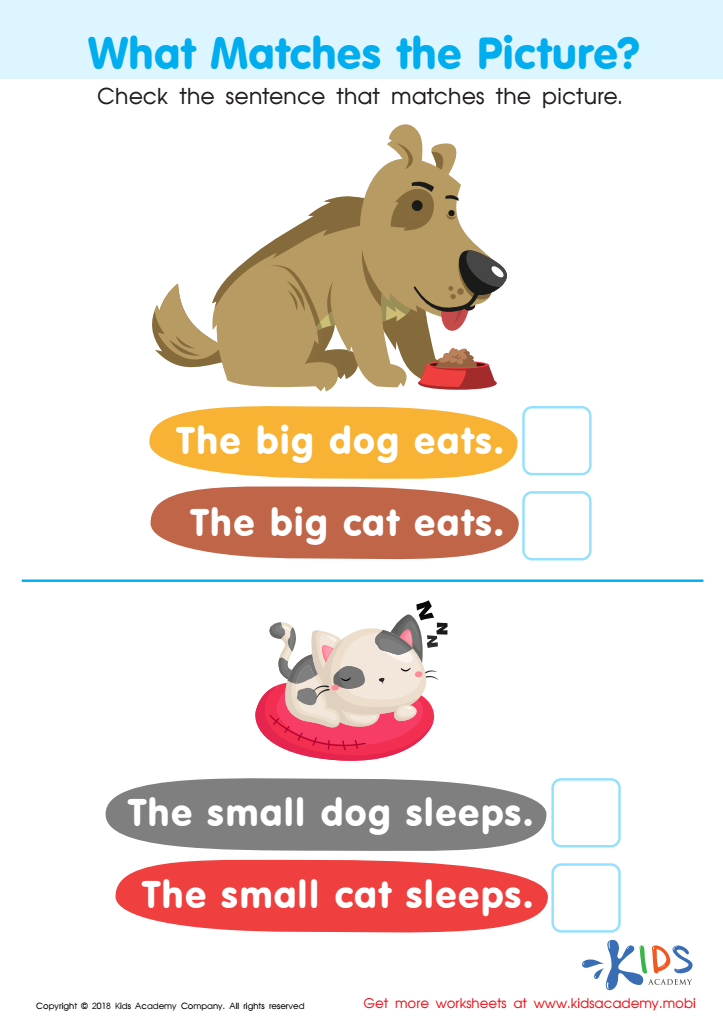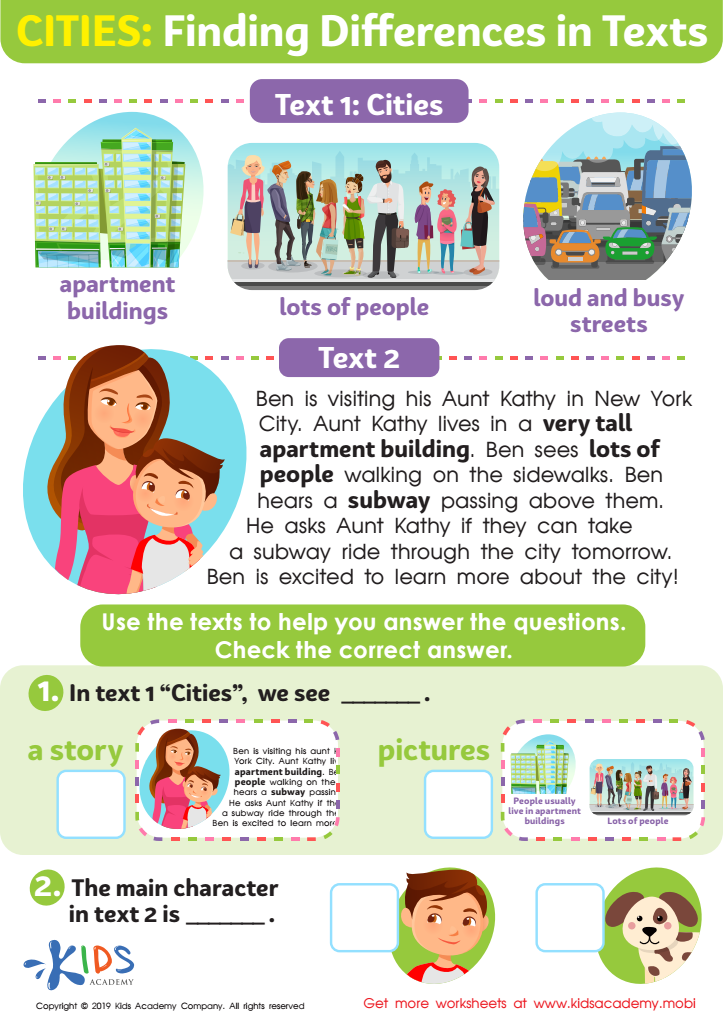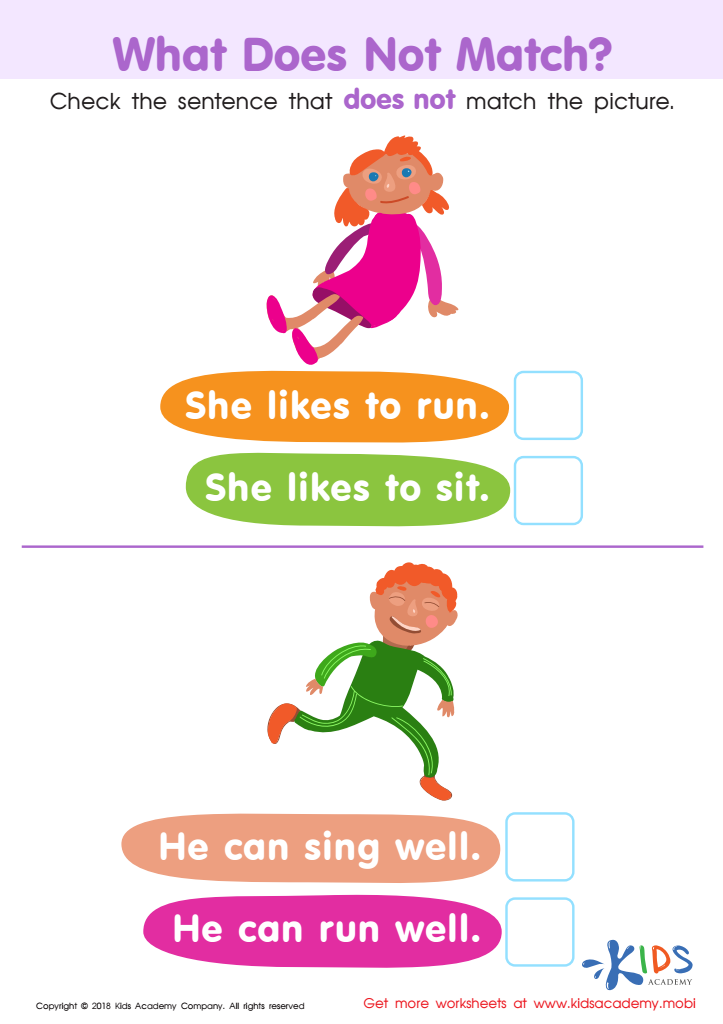Cognitive Development Reading Fiction Worksheets for Ages 6-8
4 filtered results
-
From - To
Enhance your child's cognitive development with our Fiction Reading Worksheets, specially designed for ages 6-8. Structured to engage young minds, these captivating worksheets foster critical thinking, vocabulary growth, and comprehension skills. Children will explore imaginative stories and complete activities that challenge their understanding, improve their focus, and stimulate their intellectual curiosity. Our expertly crafted exercises not only make reading fun but also lay the foundation for a lifetime of learning. Ideal for both classroom settings and home study, these worksheets are an essential tool in nurturing your child's educational journey. Unlock the world of fiction and watch their cognitive abilities soar!


Rhymes in Poems Worksheet


What Matches the Picture? Worksheet


Cities: Finding Differences Worksheet


What Does Not Match? Worksheet
Parents and teachers should prioritize cognitive development through reading fiction for children aged 6-8 due to its profound benefits on growing minds. At this developmental stage, children's brains are highly plastic, meaning they are especially receptive to new information and learning experiences. Fiction, rich with diverse vocabulary, complex sentence structures, and imaginative storytelling, serves as an excellent medium to enhance linguistic abilities. As children navigate through stories, they practice decoding words, understanding grammar, and expanding their vocabulary, all of which are critical for academic success.
Additionally, reading fiction stimulates cognitive skills such as memory, attention, and critical thinking. When children follow plots, recall details, predict outcomes, and relate to characters, they engage in activities that bolster comprehension and analytical abilities. Such mental exercises lay a strong foundation for problem-solving skills and creative thinking.
Equally important is the emotional and social development fostered by fiction. Stories often delve into varied emotions, moral dilemmas, and diverse perspectives, helping children develop empathy and emotional intelligence. Engaging with characters and their journeys allows children to better understand their own feelings and those of others, thus enhancing their socio-emotional skills.
In summary, incorporating fiction into early childhood education supports comprehensive cognitive development, laying the groundwork for a lifetime of intellectual growth and emotional well-being.
 Assign to My Students
Assign to My Students




.jpg)













